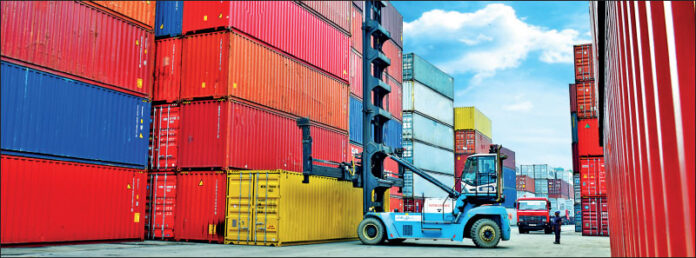By: Staff Writer
September 08, Colombo (LNW): Sri Lanka’s emergence as a logistics hub for South Asia is faltering after Customs authorities clamped down on de-consolidation, a trade practice that once brought the island considerable economic activity.
For years, Sri Lanka functioned as a vital regional center where consolidated shipments from global e-commerce platforms were broken down, with Sri Lankan goods separated locally and Indian-bound parcels dispatched onward to cities such as New Delhi, Chennai, and Trivandrum.
The new Customs regulations have effectively halted this operation, forcing online retailers and logistics firms to change their supply chain strategies and depriving Sri Lanka of a competitive edge in regional trade.
The change stems from a recent Customs decision to end the bulk clearance system by weight and instead impose duties on individual items using the HS-code classification. Officials argue this move enhances accuracy in tax collection and prevents the abuse of loopholes that allowed commercial shipments to be declared as personal imports.
While this measure may bring more discipline to customs processes, the unintended consequence has been a dramatic collapse in the de-consolidation business. Shipments that once arrived daily for redistribution are now routed elsewhere, leaving Sri Lanka sidelined as a logistics player.
Opposition legislator Ravi Karunanayake, who has experience in the logistics sector, has voiced strong criticism of the new regime. Speaking before the Committee on Public Finance, he explained that Sri Lanka had developed a unique advantage as a consolidation and de-consolidation hub, but that “if there is vision for a logistics operation, it has completely stopped.”
He further warned that the revenues previously generated from handling these consignments would now be lost entirely, as global operators divert their cargo through more business-friendly centers such as Singapore, Hong Kong, or Bangkok.
“Now the goods are going to another country and are coming as de-consolidated cargo. So those revenues we will lose completely,” he cautioned, urging policymakers to study how regional competitors maintain trade efficiency.
The losses are not merely theoretical. Sri Lanka’s position as a shipping hub has already been under strain, with business chambers warning that manufacturers face delays in importing raw materials due to customs backlogs.
Parcels now require individual classification, resulting in bottlenecks and operational inefficiencies that have left thousands of shipments stranded at Customs warehouses.
Local business associations estimate that the country is losing between Rs. 35 million and Rs. 50 million each day due to misclassification, inefficiency, and the diversion of legitimate business away from Colombo.
E-commerce platforms such as AliExpress have already scaled back low-cost shipping options to Sri Lanka, leaving local consumers facing exorbitant costs sometimes as high as Rs. 18,000 just to import a simple replacement keycap while neighboring Bangladesh continues to enjoy free shipping thanks to its more liberal trade regime.
Supporters of the new customs policy argue that the reform is necessary to plug tax loopholes and protect local industries, particularly apparel manufacturers who had long complained about competition from duty-free online imports.
They emphasize that the previous weight-based clearance system was open to abuse, with widespread under-declaration of commercial imports.
By introducing HS-code-based item classification, Customs officials believe they have introduced greater transparency and reduced opportunities for collusion or corruption. From their perspective, only goods destined for Sri Lankan customers are affected, with no restrictions on transshipment or transit cargo.
Yet the costs appear to outweigh the benefits in the eyes of many stakeholders. Sri Lanka, ranked 73rd out of 139 countries in the World Bank’s 2023 Logistics Performance Index, has long been told it must improve clearance efficiency to remain competitive.
Instead of moving forward, the country risks sliding further down the ranks, undermining its strategic geographic advantage in the Indian Ocean. The logistical setbacks now threaten both consumer confidence in e-commerce and the country’s aspirations of becoming a regional shipping hub.
The government has appointed a committee to explore reforms, including the possibility of introducing a de-minimis threshold for low-value imports, but without a practical mechanism to handle consolidated cargo, industry observers doubt whether the de-consolidation trade will return.
Unless Sri Lanka can strike a balance between tax enforcement and trade facilitation, it risks losing out to regional competitors who have already mastered this equilibrium.
The de-consolidation saga underscores a broader dilemma confronting Sri Lanka: whether to prioritize protectionist policies in favor of domestic industries or to embrace trade liberalization to unlock the island’s logistics potential.
For now, the clampdown has left the nation caught in the middle. Consumers are burdened, businesses are throttled, and the dream of positioning Colombo as South Asia’s logistics hub appears to be slipping away.
